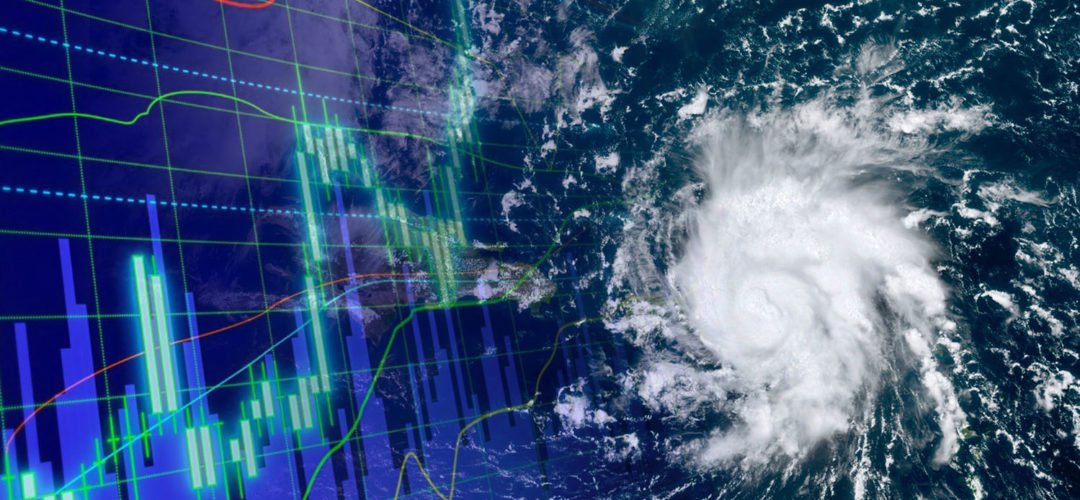Philanthropy’s Role in Hurricane Dorian
September 05, 2019
Hurricane Dorian has been named one of the most powerful tropical storms ever observed in the Atlantic Ocean. On September 1, the National Hurricane Center reported a Category 5 hurricane with gusts of wind up to 220 mph and 18 to 23 feet storm surges for parts of the Abacos Islands. While the ultimate impact of this unpredictable storm is still to be determined, the destruction of homes, families, and communities in the Bahamas, Florida, as well as North and South Carolina and beyond is certain.
In the early days following a disaster, philanthropists naturally want to take action. With communities broken and people suffering, the call to give is compelling. If ever philanthropy should step up to help, many donors believe, it is in such times of dire and unexpected need.
However, donor urgency to act can lead to mistakes. In the confusion and uncertainty following a disaster, the haste to do “something” can end up creating more harm than good.
While urgency is important, in order to effectively improve broken communities and alleviate suffering, donors should be thoughtful in their response to a disaster. Check out these ten ideas on “Giving Strategically after Disaster” from our Philanthropy Roadmap Guide.
- Prepare before the disaster when possible. Some donors create their own crisis plan with specific roles for staff or consultants and specialized resources, along with considerations regarding focus, partners and process
- Combine readiness and responsiveness with good judgment. Solid research, cogent analysis and the ability to say no to a poorly thought-out proposal are all hallmarks of good crisis giving.
“Dorian is predicted to be a devastating storm,” notes Art Taylor, president and CEO of BBB’s Give.org. “Most of us will be motivated to provide immediate help. Donations to experienced disaster relief efforts are the best option to achieve that goal.”
- Waste Not. The stories of misdirected emergency aid are as common as they are painful. Low priority aid can clog transport, storage and distribution and slow urgently needed supplies. Donors should keep in mind that cash grants are often much more useful than goods unless those goods come in response to a specific and credible request. And grants designated for general operating support can provide much-needed flexibility and stability during times of crisis.
- Reach out to communicate. Since needs often change dramatically from day to day, week to week, even established and authoritative sources may simply not know the real needs of the people and communities affected. Updates should come from trusted local sources and informants. This is where two-way communication is important. Donors need not wait passively for information to come to them. They can be active in seeking out local partners and NGOs already working in the disaster zone, not only to find out what is going on and what people need, but to ask if their ideas for philanthropic support might be useful.
- Collaborate. This can be difficult and costly, but there are glaring penalties for lack of collaboration during a crisis. Duplication, waste and poor prioritizing are among the pitfalls for funders who don’t work well with others. It’s worth remembering that philanthropy can play a unifying role in these situations, bringing together key actors across sectors.
- Consider the long term. “More than one-third of private giving is typically done within the first four weeks of a rapid-onset disaster, and close to two-thirds within the first two months,” according to a 2011 report by the Conrad N. Hilton Foundation. “Within five or six months, almost all of this giving stops.” Yet, the best role for philanthropists may not be as first responders. Communities eventually need to plan and rebuild, and philanthropists with the patience to fund these longer-term efforts can make a huge difference. One of the best ways to support long-term recovery of affected communities is by giving residents tools and opportunities to help themselves
- Monitor results and turn your experience into usable information because lessons from one crisis can inform the response to the next. However, donors should keep in mind that different disasters will require different responses and should manage their expectations accordingly.
- Increase impact by being flexible to address pressing needs. For example, can your grantmaking process be streamlined?
- Do your due diligence to figure out what programs need your assistance the most.
The BBB Wise Giving Alliance has listed BBB Accredited Charities that have announced their readiness to assist with Hurricane Dorian relief here. The list includes American Humane, Americares Foundation, Direct Relief, and more.
- Keep your focus when possible and consider adapting disaster-related grants to current priorities. For example a foundation with a program focused on youth can target grants to help after-school programs expand to include displaced children.
For additional insight on considerations and the full list of ten ideas to consider as well as instructive examples, access the full guide here.
Back to News